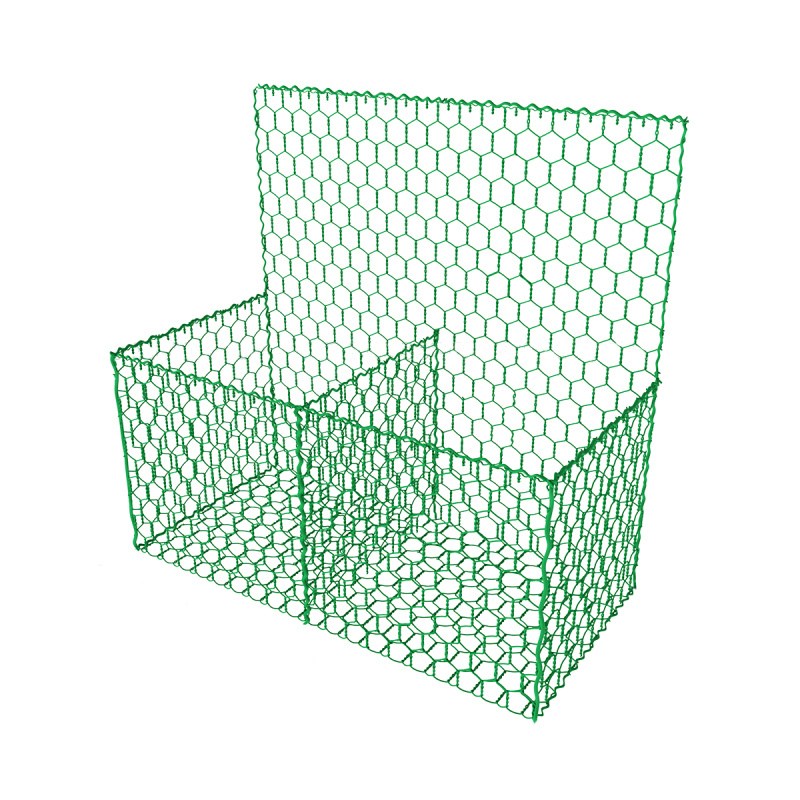11 月 . 08, 2024 15:53 Back to list
best gabion wall thickness
Understanding the Best Gabion Wall Thickness for Your Project
Gabion walls have become increasingly popular in the fields of civil engineering, landscaping, and environmental management. They are composed of wire mesh cages filled with stones or other materials, creating a robust barrier for erosion control, flood management, and aesthetic landscaping. One critical aspect that significantly influences the effectiveness and durability of a gabion wall is its thickness. In this article, we will explore factors that determine the best gabion wall thickness, typical standards, and recommendations to ensure optimal performance.
Key Factors Influencing Gabion Wall Thickness
1. Purpose of the Wall The intended use of a gabion wall plays a pivotal role in determining its thickness. For example, if the wall is designed for erosion control along a riverbank, it may require a thicker design to withstand the pressure and flow dynamics of the water. Conversely, walls meant for decorative purposes might not need to be as robust and can be thinner.
2. Soil Conditions The type of soil where the gabion wall is built can also affect thickness. Loose, sandy soils may necessitate thicker walls to provide additional structural integrity and prevent collapse. On the other hand, more stable soil types may allow for a thinner wall.
3. Hydraulic and Static Load Considerations Gabion walls are subject to various loads, including hydrostatic pressure, soil pressure, and dynamic loads from vehicular traffic or foot traffic. The thicker the wall, the better it can absorb and distribute these forces, reducing the risk of failure or deformation over time.
4. Local Regulations and Standards It is essential to consider local building codes and regulations when designing a gabion wall. Many jurisdictions have specific guidelines regarding structural integrity, which may dictate a minimum thickness for walls based on their intended application.
Typical Gabion Wall Thickness
best gabion wall thickness

While there is no one-size-fits-all answer when it comes to gabion wall thickness, there are general guidelines that can help in the design process. Generally, the thickness can range from 0.5 meters (1.6 feet) for light-duty applications, such as landscaping or small garden walls, to 1.5 meters (5 feet) or more for heavy-duty applications, such as retaining walls or erosion control structures.
For standard gabion walls used in most projects, a thickness of 1 meter (3.3 feet) is often recommended. This thickness provides a good balance between functionality and cost-effectiveness, ensuring stability while minimizing material use. However, for high-stress conditions or significant variations in soil types, consulting a structural engineer is advisable to determine the most appropriate thickness based on specific site conditions and project requirements.
Material Selection
The type of material used in constructing the gabion wall can also influence its effective thickness. Gabion cages can be filled with a variety of materials, including natural stones, recycled concrete, or even recycled glass. Heavier, more compact materials can offer added strength and stability, potentially allowing for thinner designs without compromising safety.
When selecting materials, it is important to ensure that they are both durable and capable of withstanding environmental stresses. The cage itself should also be constructed from high-quality, corrosion-resistant wire mesh to enhance longevity and prevent degradation over time.
Conclusion
In conclusion, determining the best thickness for a gabion wall requires a careful evaluation of multiple factors, including the wall’s purpose, soil conditions, load considerations, local regulations, and material choice. While general guidelines suggest that a thickness of around 1 meter is suitable for most applications, specific project requirements may necessitate adjustments to this standard. Working with engineers and skilled contractors can ensure a well-designed gabion wall that meets all safety and functional needs, ultimately providing a reliable solution for your project. With proper planning and execution, gabion walls can offer both aesthetic appeal and functional benefits for years to come.
-
Why PVC Coated Gabion Mattress Is the Best Solution for Long-Term Erosion Control
NewsMay.23,2025
-
Gabion Wire Mesh: The Reinforced Solution for Modern Construction and Landscape Design
NewsMay.23,2025
-
Gabion Wall: The Flexible, Seismic-Resistant Solution for Modern Landscaping and Construction
NewsMay.23,2025
-
Gabion Wall Solutions: The Durable, Decorative, and Affordable Choice for Every Landscape
NewsMay.23,2025
-
Gabion Basket: The Durable and Flexible Alternative to Traditional Retaining Walls
NewsMay.23,2025
-
Gabion Basket: The Proven Solution for Slope Stability and Flood Control
NewsMay.23,2025
-
Versatility of Chain Link Fence Gabion
NewsMay.13,2025






